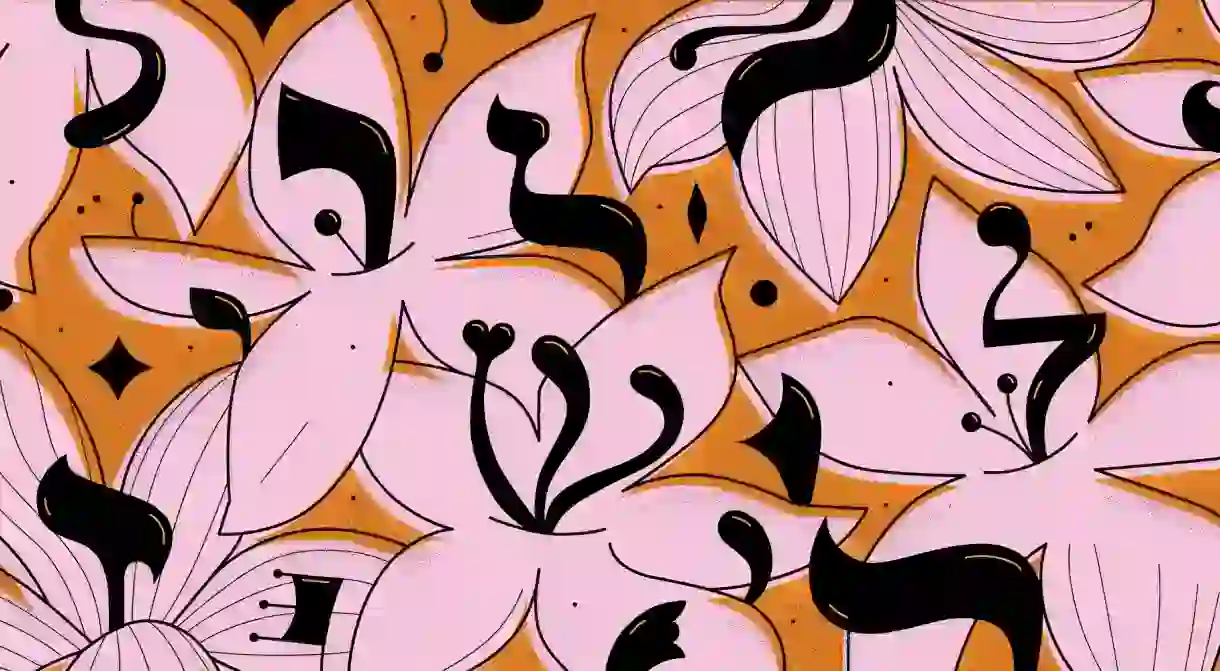Beautiful Words to Make You Fall in Love With the Hebrew Language

Hebrew words are a mixture of ethereal and guttural sounds, with meanings often rooted in ancient Jewish culture. It was revived by Zionists in the late 19th century, having been largely dormant for 2,000 years.
Stav (staav) / autumn
The word stav derives from the Aramaic word for winter, sitva, which was its original meaning through antiquity and the Middle Ages. It wasn’t until the 19th century when a scholar, Mordechai Yaweel, defined stav as what we know as autumn. A prominent poet called Judah Leib Gordon emulated this and gradually influenced a generation of teachers. Soon enough, the first generation of Hebrew speakers who defined stav as autumn, not winter, emerged.
Kahyeets (kah-yeets) / summer
A word that takes your imagination to the best of Israel: sun, beaches, matkot (beach paddleball), cold watermelon and limonana. Such is the excitement for kahyeets in Israel that it was the name of a hit song by Avior Malasa, and has inspired countless others.
Shemesh (sheh-mesh) / sun
For the pagan-influenced ancient Hebrews, the sun was a goddess, considered one of the leading Canaanite deities. Beit Shemesh, now a religious city near Jerusalem, was where sun worship was most widely practiced. Despite later attempts by Jewish religious scholars to stamp out this pagan idolatry from the Hebrew language (kha-MA, the female word for ‘hot’ in Hebrew, is the word you’ll find for sun in the religious texts), shemesh preserved its status and was adopted into modern Hebrew.
Neshama (nesh-a-ma) / soul
One of three words present in the tanakh (the Hebrew Bible) to denote the soul, along with ruach and nefesh, neshama is a cognate of nesheema, which literally means ‘breath’. There is a Jewish belief that this breath came from God and is the source of part of man’s soul. Neshama sheli – ‘my soul’ – has become a popular term of endearment among Israelis.

Chayim (chay-eem) / life
In addition to being the name of the famous female pop trio Haim, this is the Hebrew word for life and a common name in Israel. The first two letters, chet (ח) and yud (י), which together mean chai (alive), are popular symbols on necklaces and other Jewish jewellery. L’chayim! is the Hebrew equivalent of ‘cheers!’, and literally means ‘to life!’.
Shamayim (sham-ay-eem) / sky/skies
While there are multiple theories about the origins of this word, it is commonly used in the tanakh as ‘sky’, often alongside the word for land, erets, to represent creation in its entirety. Broken down into sham-mayim it literally means ‘there, water’, which could reflect early attempts to make sense of rain and the sky.

Yareakh (ya-re-akh) / moon
The word yareakh is even more ancient than the Hebrew language and can be found in other Semitic languages, including Southern Arabic and Geez, where it means ‘new moon’. Like shemesh (sun), the yareakh was seen as a god in ancient times; a belief Jewish sages tried to eradicate by replacing the word with levanna (white). Yareakh, with its guttural ‘akh’ sound that is typical in Hebrew, is also the title of a song by one of Israel’s most loved singers, Shlomo Artzi.
Ahava (ah-ha-va) / love
The root or base of this word is hav, meaning ‘to give’. Perhaps this reveals a fundamental truth: that to love is to give – a beautiful thought that can resonate universally.

Simcha (sim-kha) / happiness
The word simcha is derived from the verb sameach. It is rooted in the Akkadian word shamahu, meaning ‘sprout’ or ‘flourish’, and is also used as a name in Israel. Simchat Torah (‘Rejoicing of the Torah’) is a joyous religious holiday in which Jews conclude, and begin anew, the annual Torah (Jewish religious text) reading cycle.
Perakh (pe-rakh) / flower
The Hebrew word for flower derives from the verb liphroch, meaning ‘to blossom’, which can be used, beautifully, in reference to a person. The word has inspired plenty of Israeli musicians, from a famous old-school Israeli lullaby to a hit song from 2017.
Ruakh (roo-akh) / spirit
Ruakh, where ‘akh’ is a guttural sound, is the Hebrew word for spirit and features prominently in the tanakh. It is also the word for wind, and in religious texts has taken the meaning of ‘God’s breath’. That is to say, the human spirit comes from a breath from God. The very meaning of this word touches the core of Jewish spirituality.













